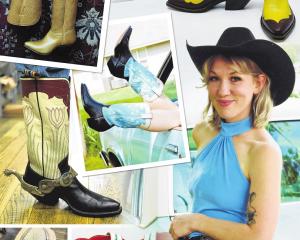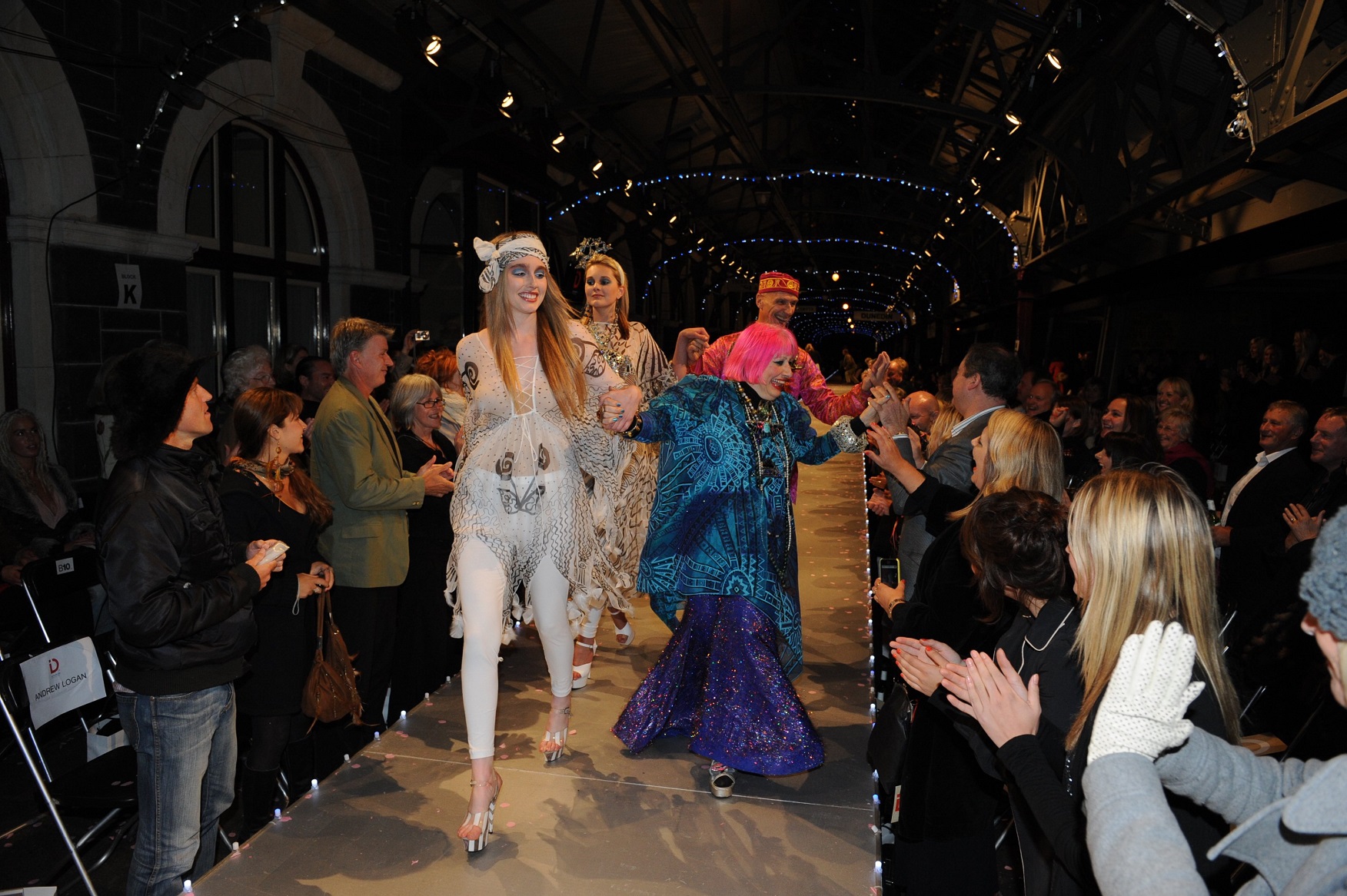
Now a dame, Rhodes has released her memoir. The designer talks to Eva Wiseman about her astonishing upbringing, being spurred into action by cancer and what she’s doing with her 6000 dresses.
When you visit Zandra Rhodes you don’t just walk into her flat, you’re invited into her psyche, stepping into the orange cubist block, crossing a sparkling terrazzo lobby and then rising up to a penthouse decorated in deep and dusty shades of pink.
In her 84 years, Rhodes has become famous for how she plays with colour in ways that both confront and seduce - to stand here, in the rainbow room and golden afternoon light makes you feel energised, and a little high. She meets me in her living room in a puff-sleeved yellow dress, with her famous fuchsia bob (Pinkissimo by Crazy Color) and a large cup of tea. "Hello!" she calls, 4ft 11in in flower-painted trainers, "Hello, hello!"
It was here in this room, just before the pandemic hit, that her best friend, Andrew Logan, was guiding her in a yoga session when she lay back on her lilac mat and realised her stomach felt unusually full. She went to the doctor, who told her she had a 13cm growth, cancer of the bile duct, and gave her six months to live. She recalls the meeting now with a certain briskness. "It was Covid then, so I realised no-one need know, and I decided not to tell anyone," Why? "Because if people knew I wouldn’t get any more work!"
The first thing she did was organise her will, and, "My ‘do not resuscitate’, and then I called my accountant to talk about setting up the Zandra Rhodes Foundation, to protect everything and make sure that this …" she flicks a birdish hand to a rail of dresses, a lifetime of work, "will all be around in the future."
What about you, though, I ask, the you beyond the work. "I think the two are so entwined … And I don’t think I had time for that bit." She was thinking seriously about her legacy. "It was very positive, actually. I feel like it was a warning, that I had to get my life in order, get everything done. It made me focus. And if it wasn’t for that I’d have never formed a foundation and never found out I had 6000 dresses all hidden away that now I’m sending to museums across the world, never finished the book. So …" she chuckles, "it’s been rather wonderful, really."
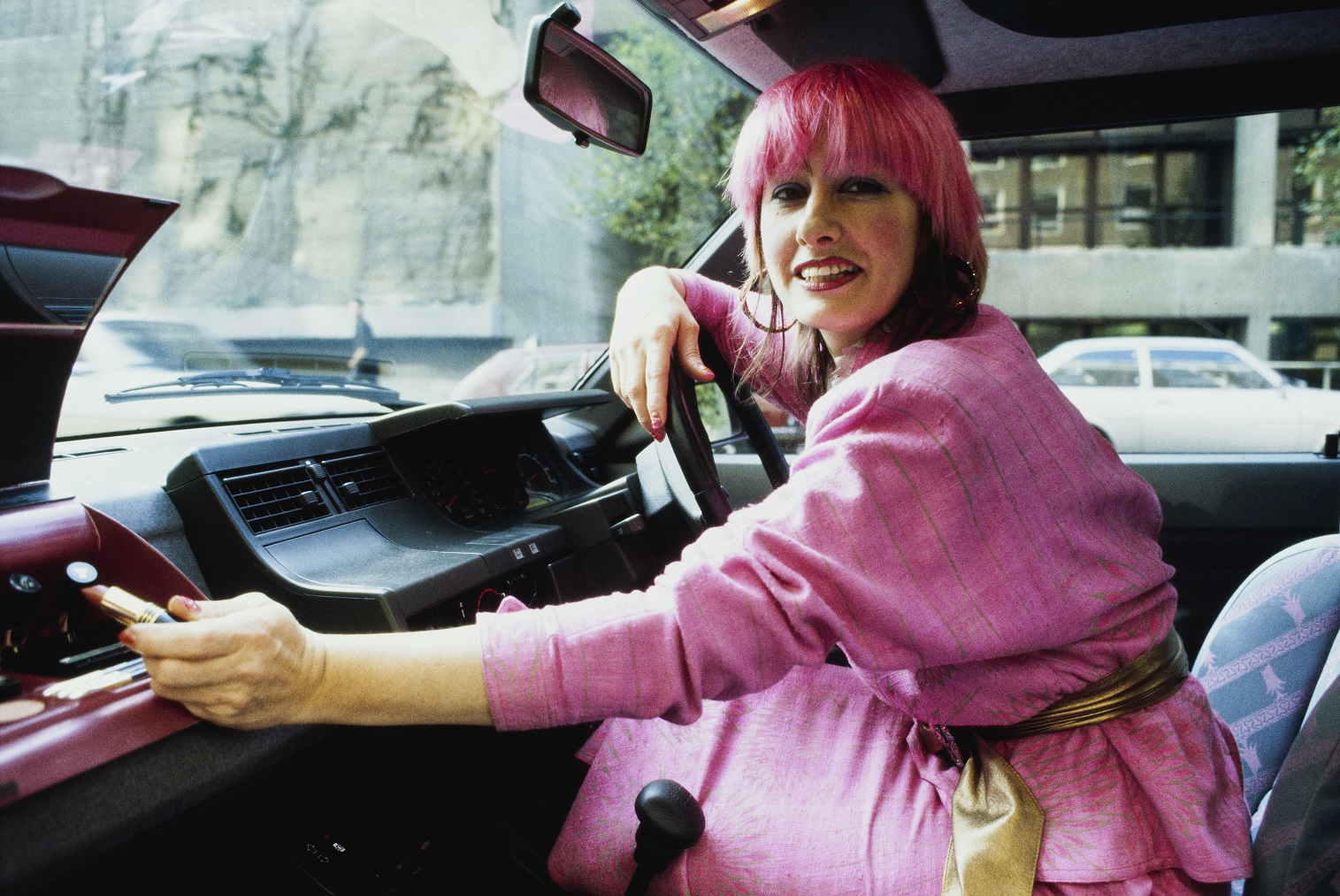
Then there’s the cape she made for Freddie Mercury, who had to clamber past her crowds of cannabis plants to get to a fitting, and a straw goat (a gift from drag queen Divine), and Diana Ross’ turban – one afternoon in LA, Rhodes saw Ross, a client and friend, but when she approached to say hello Ross hissed at her to get away. The next day Ross called to apologise – she hadn’t recognised Rhodes with green hair, stuck with feathers.
There are stories about her working relationship with Diana, Princess of Wales, too, and Diana Vreeland helping her break America, and of her "whizzy" life in New York, dining with Salvador Dalí or at Andy Warhol’s Factory, of Bowie visiting her flat to see Divine when Rhodes was out ("Can you imagine Bowie popping over and you’re not even there to offer him a cup of tea?"), as well as desperation when her business nearly went bankrupt in the 1990s.
"The most difficult thing was actually facing my past, like my father’s background." She’d never got on with her dad, who was less "classy" than her mum – "younger children are very snobby, aren’t they" – because she’d heard, growing up, that his mother had been a sex worker and was murdered by a client, a story that hovered grimly over her childhood. It was only recently that she learned the truth, more complicated but no less shocking, that her grandmother was murdered at 41 by a lover, who nearly decapitated her with a razor in front of one of her young daughters. Rhodes’ father had been left with an alcoholic aunt and uncle, and in returning to his story for the book, she found a new respect and fondness for him.
The book launch was equally unexpected. "I invited my ex-boyfriend, and there stood this little old man of 82 who wasn’t much taller than me! It was funny reliving things, where in the past I’d always just gone on to the next thing and pushed any worries aside." She gestures with her arms, as if shovelling her way through a tunnel. "It’s a survival instinct. You keep on swimming past." Rhodes has never enjoyed looking backwards – the book forced her to. "And, actually, it proved interesting and made me worry I’d left that much behind me. Does that make sense? I was so glad I’d done this. It’s been … cleansing."
A few years ago she received a letter from a girl she’d grown up with, apologising for laughing at her for the way she dressed. Rhodes replied with bemusement, saying that’s nice but she’d never noticed anyone laughing. Thick skin, she writes, "allows you to do anything".
In the ’70s, an American beauty company executive turned down a collaboration with Rhodes, saying: "Excuse me for saying so, but in my day women who dyed their hair were of dubious virtue." Again, bemusement – her mother had impressed on her the importance of fashion and flamboyance, hence gifting her the name "Zandra".
Each of her boyfriends, however happy the relationship at first, eventually took issue with Rhodes’ appearance, too. As well as her pink (or green) hair, decorated with feathers, she would shave her hairline back to make room for more colour on her face, like red curls drawn with lipstick, and she plucked out her eyebrows, painting on the line of chic blue or pink dots that she still wears today. "They’d look at me as if something was wrong, or tell me I looked terrible."
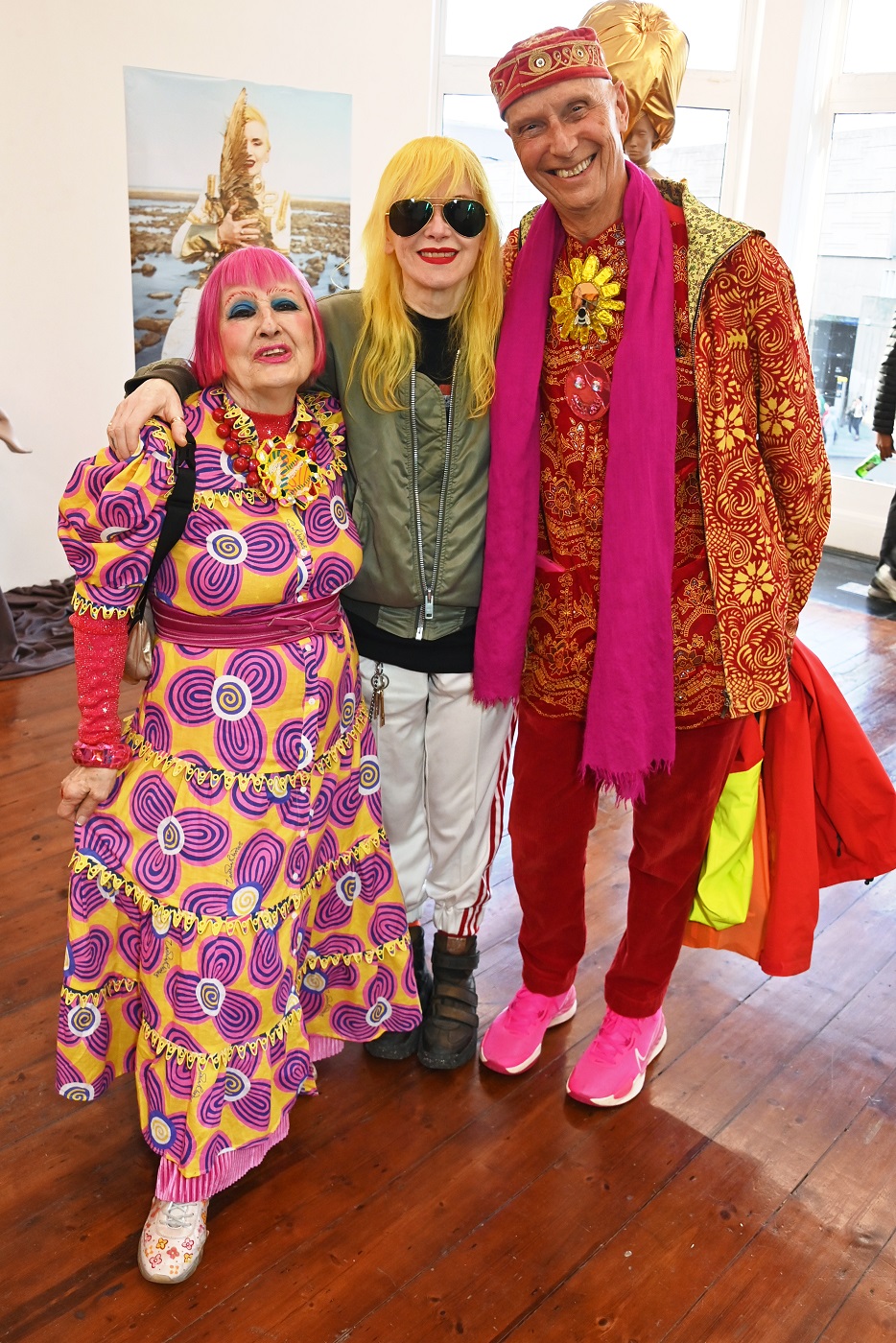
Does her hair feel rebellious today? She scoffs. "No! I reckon if I was to walk to the Tube, I’d probably pass at least three or four people with pink or blue hair." How does it feel not to stand out any more? "I’ve never really noticed. I’ve still got a fairly thick skin. And I just sort of … go to wherever I’m going. And pink hair is so easy to keep. I just plonk the dye on every few weeks." She shrugs. "It’s a very useful suit of armour. I can be hidden."
Did she keep up the pink when she was having chemo? "Oh, yes. When I went to see the specialist, the doctor said, ‘There’s one question you haven’t asked,’ and I couldn’t think what, and he said, ‘Will you lose your hair?’ And I said, ‘Well, I have plenty of pink wigs.’ Colour, it makes the day jolly. Joyous." She chuckles. "Once, the Daily Mail asked me to wear black for a week. And I found it terribly depressing. Plus, black shows dirt quicker than anything else! But the thing I found quite difficult was, I didn’t feel interesting when I was in black." She’d find it even harder today she thinks. Same for the eye-shadow. Famously, she sleeps in a full face of makeup. "Because when I take my makeup off, it’s a complete shock! When you’ve got your makeup on, whatever the rest of you looks like, you look all right for the picture, as it were." She raises her pink eyebrows.
We’re sitting at the huge Perspex table she made as a student, at college with people like Ossie Clark and David Hockney. In the middle is an eruption of flowers surrounded by hundreds of pebbles and rocks she’s collected over the decades.. Sun roars through the window as Rhodes takes a swig of tea and fans herself. "I feel that fashion today," she says, raising her chin, "looks a bit lost." She thinks for a second. "But then, it always goes through a low period and then it shifts again. I think everything moves so quickly that the excitement moves as well."
What does she mean by "lost"? "Well, we’re in a difficult situation because of separating from Europe. It seriously curtailed the future of our youth. And it’s rather sad that selfish politicians couldn’t see that. Our arts industries were injured and it’s now going to be years before people can get around it again." But, she sighs, "This country has always been creative and I think we’ll survive it. The youth are just going to be strong and they’ll move to where they can expand and be used."
When she thinks about arts and creativity, is she thinking only of young people? "Well, I like to think that I’ve still got things to give the world! I love designing. I love what I do. I’d keep doing it regardless of what the money is. I say to young people, do whatever is right for your creative spirit. Don’t give up. Just keep going. People will always find a way and maybe a new way is going to come. I wonder what it will be." She dabs her forehead. "Are you feeling hot in here? I feel as if I’m disappearing!" She leads me out to the balcony, lush with plants, and we settle ourselves under a huge gold shield of a lion’s head to talk about getting old.
"I don’t think about age at all, actually. One of my best friends is 91, but then most of my other friends are probably late 70s, and very youthful. But my team’s young, most of them aren’t yet 30 – it doesn’t matter that I could be their grandmother. Age is about spirit." How has she managed to hold on to herself, I ask, when there are so many external pressures and internal reminders of age? "I just pretend to be younger! And it works! They pretend, too, I think. Well, they let me stagger up the stairs slowly while they go ahead."
Another thing Rhodes has managed to preserve is her name, a rare feat in fashion. She turned down jobs from both Oscar de la Renta and Yves Saint Laurent, because they said her name couldn’t appear on pieces whose prints she’d designed, and she’s maintained her brand even through grand dips in success. Rhodes enjoyed those quiet times, though, she says, as it gave her more time to sketch and think. "When everyone wants a piece of you," she writes, "it’s much harder to slip away."
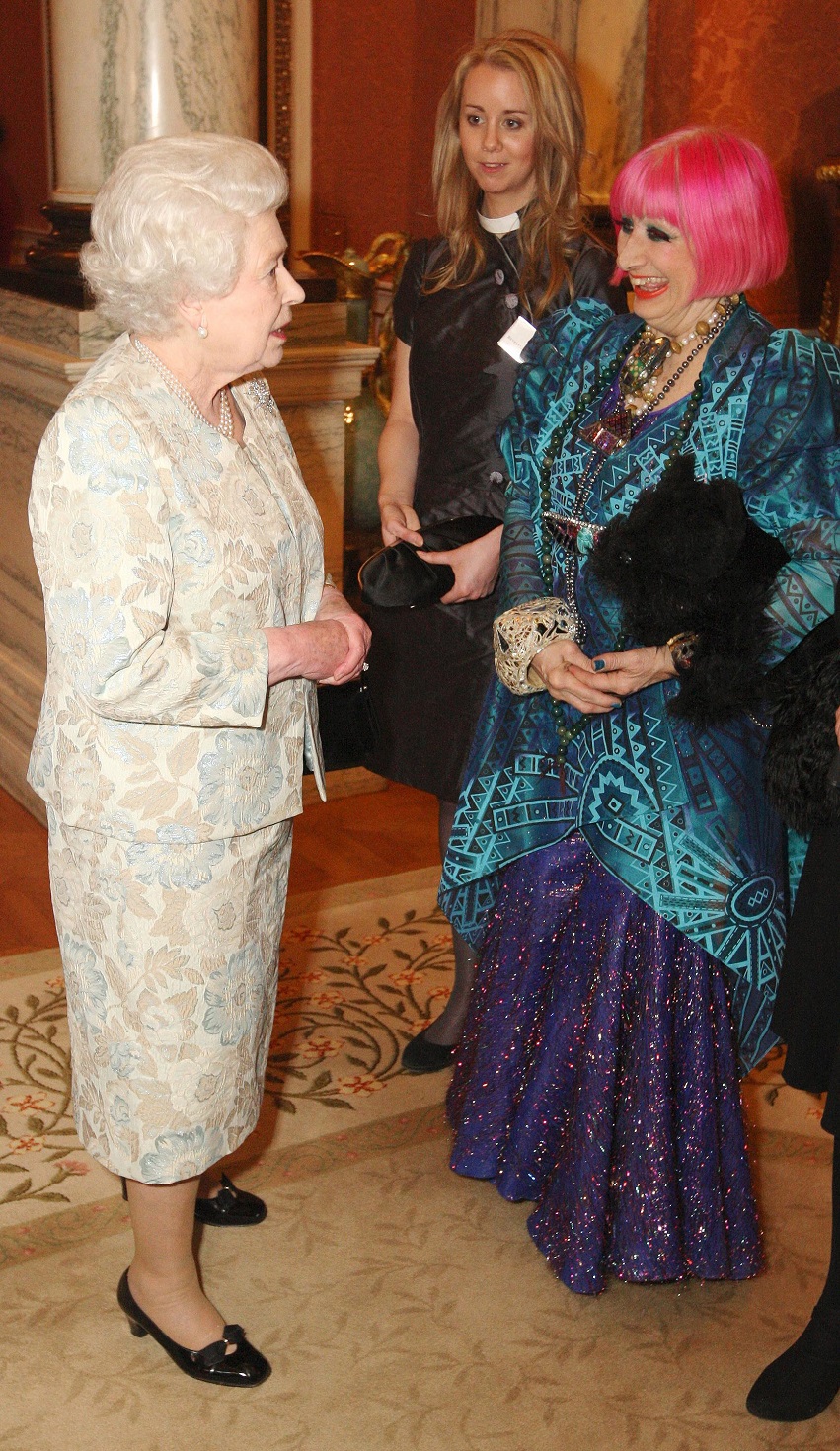
And how is she feeling about the state of the world right now? "Oh my God. Pretty depressed. I think Boris should be hanged, drawn and quartered, put in the stocks so we could throw things at him. I’d enjoy that. You know, years ago when I was younger, I thought if people were politicians they were one step above me. And that they had scruples. That they were good people. Now I think it’s the dregs that go to the top, the dregs that become politicians. And they don’t tell the truth. Maybe they wouldn’t get there if they did."
Is she feeling positive about a new government? She sighs. "Well, whoever came in now, the situation is so terrible … but you can’t give up hope! We just have to hope that they’re going to stop quarrelling among themselves and think of what’s best for the country and not their pocket. I mean, I think it’s horrendous that whoever’s been prime minister then gets a salary for life. Did you know that? It’s a horror story."
When she was growing up, she says, "It was possible to live as an artist. Yes, it was possible to start from really being working class and find your way up." A study found that the number of UK "creative workers" born between 1953 and 1962 who identify as working class was 16%. By 2022 that number had halved. "At the moment, I think all of education is suffering and the standards are going down. Bit bleak, isn’t it?"
These days, her alarm goes off at 6am – she works on new projects from about 8.15am and categorises her archive, deciding which museum to donate each piece to, then has immunotherapy every three weeks, and attends most of Andrew Logan’s evening yoga classes on that same lilac mat. Surrounded by all these objects, does it feel like the past is close? "Yes, it doesn’t feel like that many years have gone by. It still feels as if it’s around. After having realised you’ve bared your spirit for the book, and told stories about your adventures and how things went wrong, it’s quite refreshing. It frees you from things that were once secrets."
The compelling, but also confronting thing about a memoir is that it gives a life a clear narrative, a beginning, a middle and … "Let me just say," Rhodes leans in, "Mine hasn’t ended yet." Then she busies herself, and smiles, because it’s after two now, and she has to get back to work.
Iconic: My Life in Fashion in 50 Objects by Zandra Rhodes, published by Bantam RRP$60
-The Guardian





